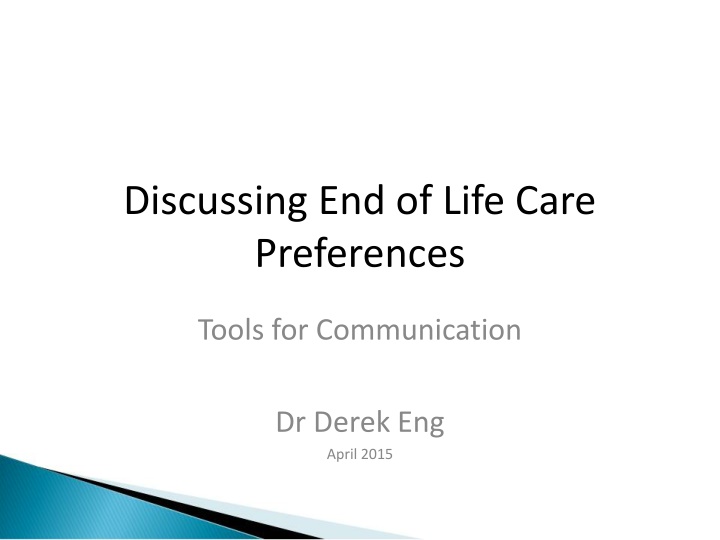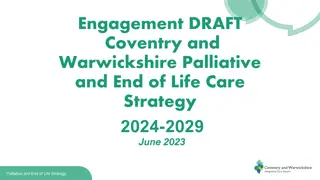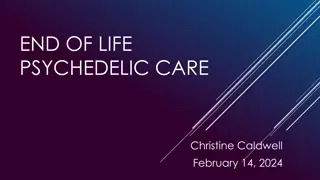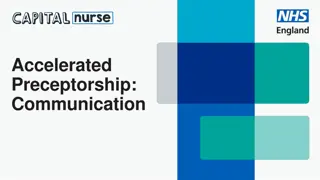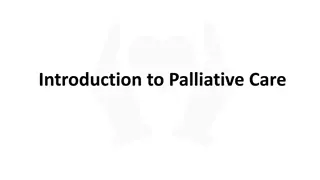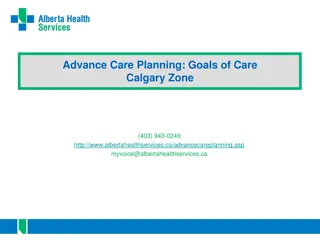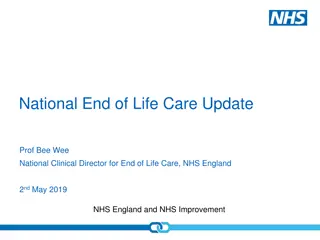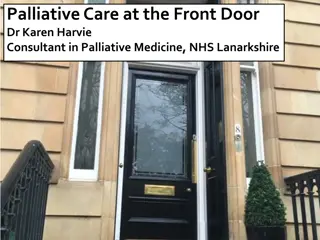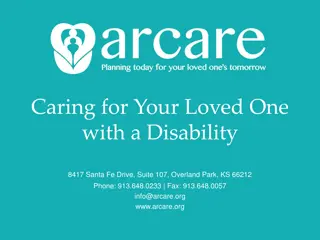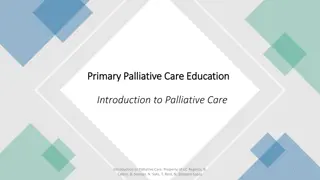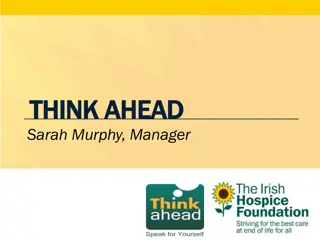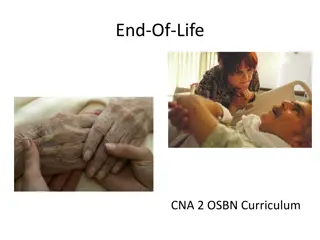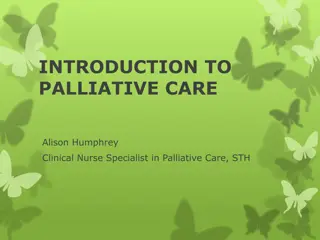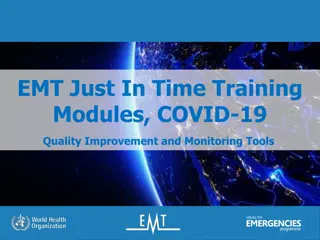End-of-Life Care Preferences Communication
Tools and key skills for discussing end-of-life care preferences, exploring patient concerns, raising concerns, and responding to emotional cues. Practical recommendations for effective communication in such sensitive situations.
Download Presentation

Please find below an Image/Link to download the presentation.
The content on the website is provided AS IS for your information and personal use only. It may not be sold, licensed, or shared on other websites without obtaining consent from the author.If you encounter any issues during the download, it is possible that the publisher has removed the file from their server.
You are allowed to download the files provided on this website for personal or commercial use, subject to the condition that they are used lawfully. All files are the property of their respective owners.
The content on the website is provided AS IS for your information and personal use only. It may not be sold, licensed, or shared on other websites without obtaining consent from the author.
E N D
Presentation Transcript
Discussing End of Life Care Preferences Tools for Communication Dr Derek Eng April 2015
Key skills Exploring the patient s concerns about their end of life preferences/care (their agenda) Raising your concerns (your agenda) Responding to emotional cues the NURSE acronym
Exploring the patients concerns about their end of life preferences/care: key skills Ask-Tell-Ask AND Tell me more : Explore their hopes and fears/concerns Clarify their goals and expectations before any decision making discussion Capitalise on opportunities to align their goals with ours: It sounds like you are fed up with hospitals, perhaps when this happens again, we can have the care come to you at home
Exploring the patients concerns about their end of life preferences/care: key skills If the patient does not want to discuss the future you could try these skills: A hypothetical situation I know that you re a very positive person and things will probably go well this time around. If things down the track don t go so smoothly, we would like to know your thoughts? Hoping for the best, preparing for the rest What are you hoping for at the moment? Would it be okay to talk about your concerns for the future in case things don t go as well as we hope? An I wish statement I wish I could guarantee that the antibiotics will work every time. What would be important to you if things were clearly getting worse?
Raising your concerns Catastrophic events at the end of life (e.g. major bleed, airways obstruction, cardiac arrest) need to be discussed with patient and with family carers. Not for CPR and MET call Reassure that appropriate medical care WILL continue (eg. IVAB s, IV Fluids etc) Make a recommendation based on best evidence
Responding to emotional cues N: Name it: it sounds like you ve been worried about what s going on U: Understand the core message: if I understand you correctly, you are worried about what to say to your family and how they will react R: Respect /Reassurance at the right time: I m really impressed that you ve continued to be independent . S: Support: would you like me to talk to your family about this E: Explore: I notice that you re upset, can you tell me what you re thinking? Back, Arnold, Tulsky Mastering Communication with Seriously Ill Patients
Remember: Respect the patient by listening to their concerns in a non-judgmental way Acknowledge patient s emotions and allow this to settle before trying to give information You are the medical expert - make a recommendation based on best evidence Experiential workshops are the best way to learn and practice the communication skills.
